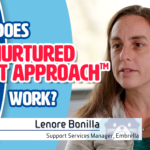What is social media?
Is your foster child on social media? Social media is defined as a form of electronic communication that allows users to create online communities where information, ideas, personal messages and other forms of content can be shared. Some of the more popular examples of this platform are:
- Snapchat
- YouTube
Because it’s one of the most common ways to interact online, many people and businesses are utilizing social media on a more consistent basis. It can be a great tool but can cause more harm than good if it’s used in an improper manner.
Can I post pictures of my child in care on social media?
As noted in the Resource Family Handbook, “Children in care cannot be photographed for newspaper articles, Facebook or any publication where their identities would become known to the public.”
In practice, this means that foster parents cannot post any picture of a foster child on social media that might allow the child in question to be identified. Likewise, it’s also important to never reveal personal information about your child in care on the internet. Doing so jeopardizes his safety and violates his right to privacy. However, as social media has become an ingrained piece of everyday life for most people, including foster children, many parents have found ways to share their photos and memories without violating the rights of the children in care. When photographing their children for social media, foster parents:
- Use a digital sticker, like those found in Instagram and Snapchat, to cover any identifying features of the child
- Crop the picture to remove identifying features from the frame
- In addition to the above, if you refer to the children in text, use nicknames or just their first initial
Can I talk about my child in care to another resource parent who is seeking advice online?
Even forums and message boards are considered a form of social media. You can share advice, but discussing confidential information about your child in care is a violation of the Division of Child Protection and Permanency’s (CP&P) policy.
When you need input from other resource parents, or vice versa, you are allowed to only describe the situation in general terms. Discussing information beyond that is a breach of the child’s confidentiality and could put him at risk. Be careful when asking for or seeking advice about a foster child on social media.
How can I protect my child in care’s privacy if I have to send an email to his teacher about his behavior, for example?
Respecting the confidentiality of your child in care is vital. If you need to send an email to his teacher, only discuss what is important to the specific situation. This way, his teacher can address his immediate needs and your child in care’s confidential information remains that way.
Why should I monitor my child in care’s activities on the internet?
While the internet is a great source of information and an integral part of your child in care’s education, it also has many risks. As a parent, being aware of the dangers of the internet is necessary. Getting involved with your foster child on social media will help you to protect your family and avoid complications in the future.
How do I help my child in care use the internet safely?
Cable and phone service providers offer the option of setting up parental controls. With these, you will be able to restrict the sites your child in care can browse through. This will prohibit him from viewing inappropriate content. Some other methods are:
- Browse the internet with your child in care and teach him about what is and isn’t appropriate.
- Talk to your child in care about the various websites, just as you would talk to him about TV shows, video games and movies.
- Establish boundaries by designating a family computer, tablet or smart phone with rules to follow, and schedule times for use.
- Set up computers in common areas where activity can be easily monitored.
Is there any online information about internet safety I can access?
You can learn more about internet safety by visiting the following websites:
- www.kidsgetnetwise.org
- www.education.com
- www.firstgov.kids.us
embrella offers a course called Being Digitally Savvy in a Digital World that gives you great tips on helping your child in care use the internet safely. You can access it from our website at www.embrella.org, or you can call our toll free Information Line at 800.222.0047. Staying informed is key when it comes to social media confidentiality. The more you know, the more you can protect your entire family.



How are the foster parents able to put my kids on their front cover of Facebook and posted videos on utube? Thought it was illegal
If I see a foster parent post photos of their foster children online and disclose their stories, how do I report this?
If you see a violation of social media usage from a foster parent, what can I do to report it?
My daughter is currently in a kinship home and the lady that has her kept posting pictures on Instagram of my daughter. I did file a police report. Is there anyway i wpuld be able to get my daughter back
Here’s my first question to you is there a tpr. If there is not it is highly illegal to have your child’s face plastered on social media including Facebook on any other social media platforms. Depending on the state your foster parent agency has to allow you to give a written consent by both parents in order to post such pictures on social media if none was given none can be taken. I’m going through it now as we speak email me directly will talk more about this!
You can report it just do a little research online exactly find out how to go about it
You’re going to start by reporting it to the social media platform directly, Dan report the foster parents to the agency.
oh here’s a thought…. don’t publish anything about the foster child on social media!!! like it’s not about you… also the advice being offered here to “crop out” or “place a sticker on the child’s face” is so irresponsible. i know as an adoptee myself how confirmation bias is rife in foster and adoption communities…. and that the advice being offered here is likely a copy and paste… but please… it’s not enough that the child’s lineage is being erased, what the carers go and crop out and put stickers on kids faces, erase them further and make it public. This makes me so mad. please get educated about the harm that is being done to these little humans and cut the crap.
hello Im in Ohio. The lady that has kinship over my Grandchild is posting her all over social media . Im trying to find out if anything can be done about it